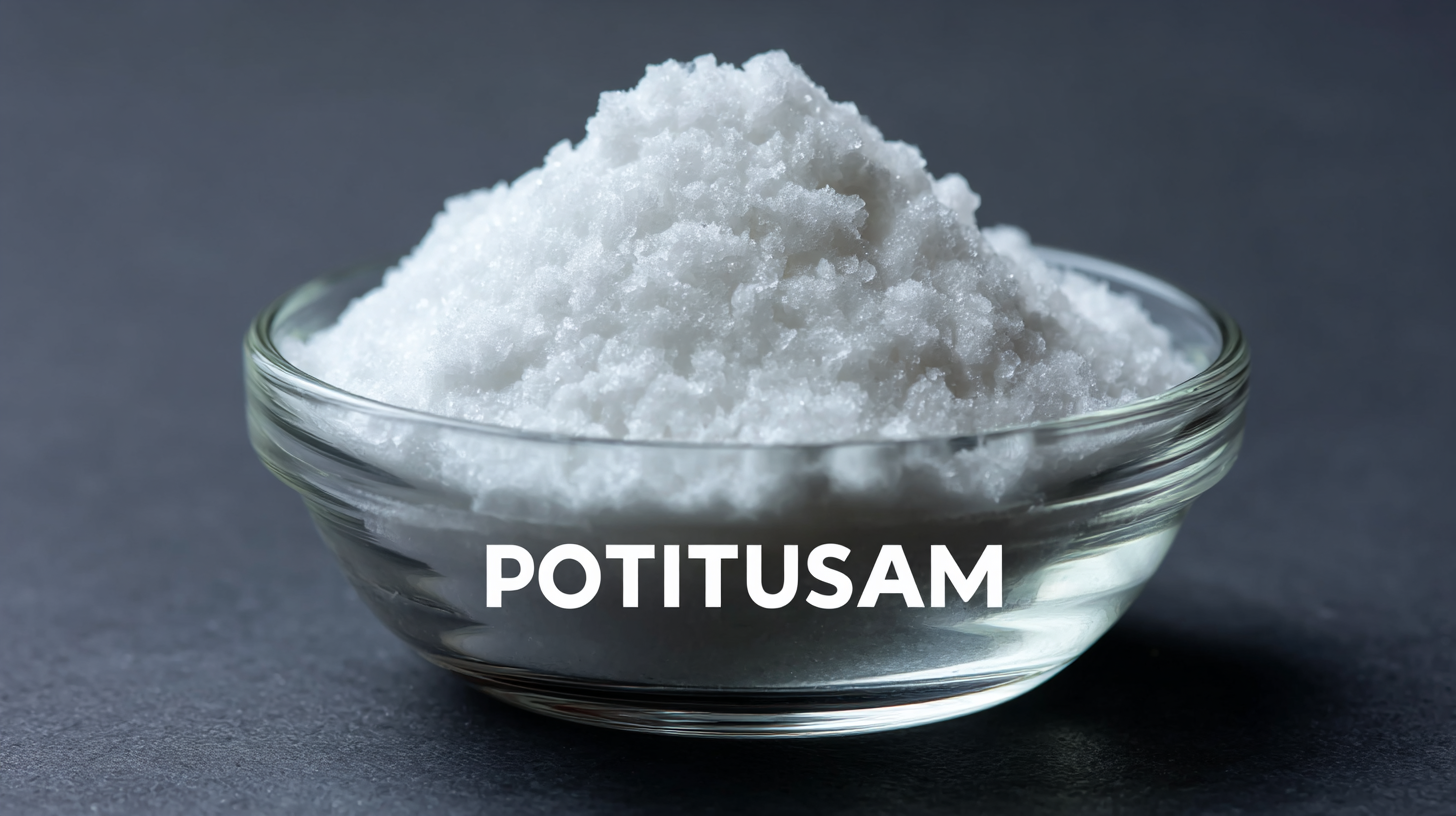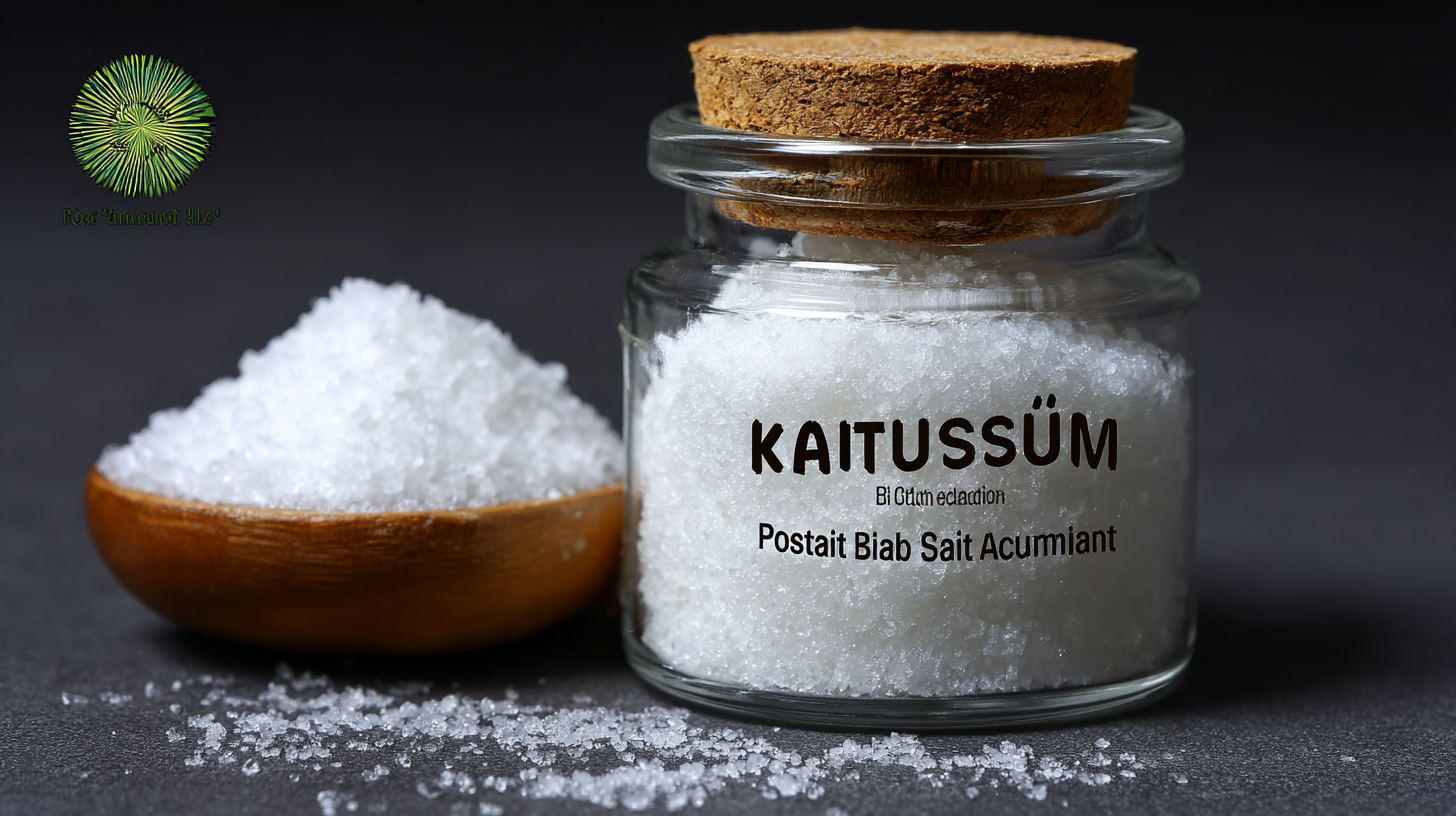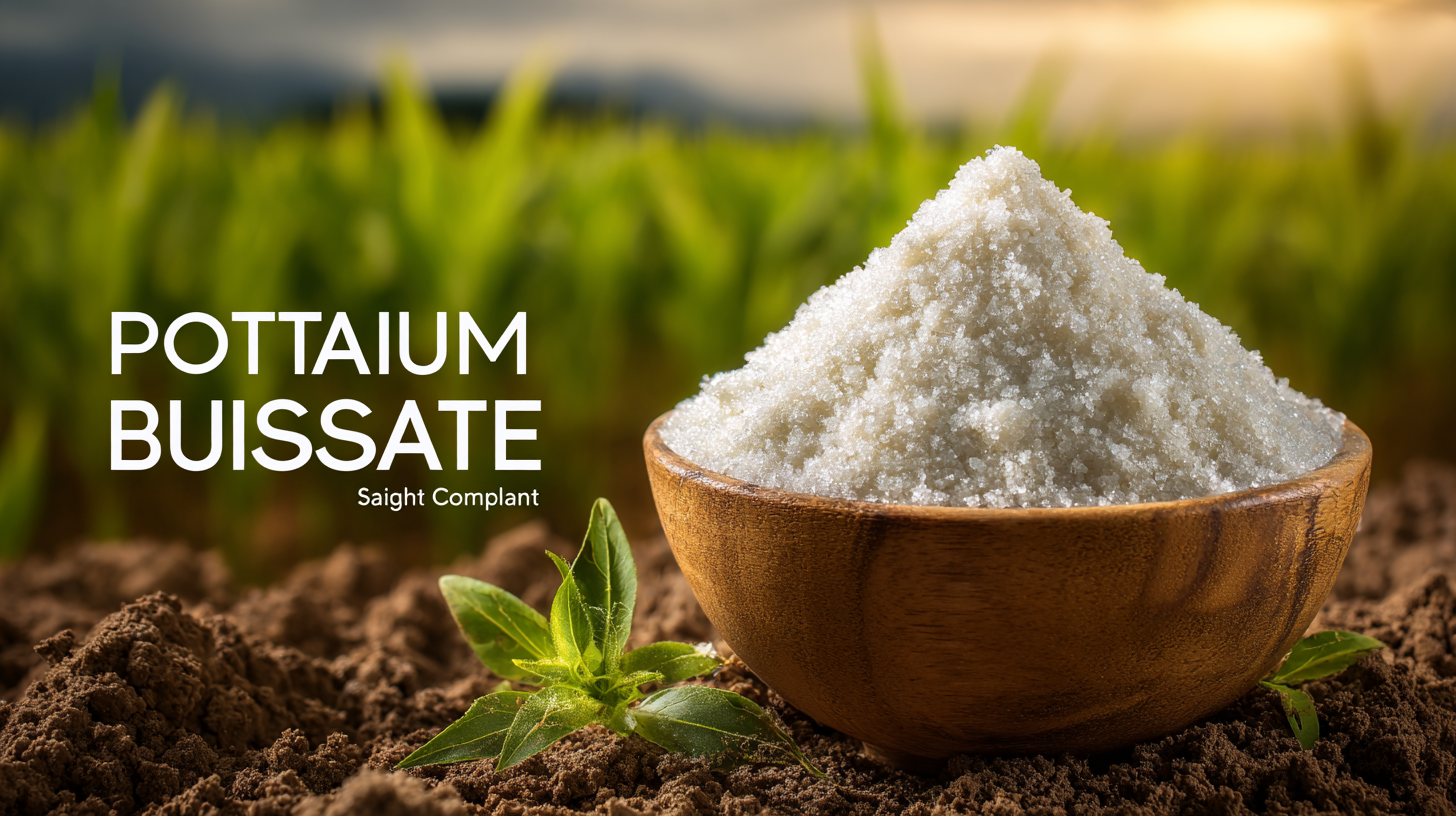In the dynamic world of agriculture, the quest for effective and sustainable fertilizers is more critical than ever. One compound that has garnered significant attention among farmers and agronomists alike is Potassium Bisulfate Salt Compound. This remarkable product, hailing from China’s top factories, is revolutionizing the way crops are nurtured and yields are optimized. Known for its unique properties that enhance soil health and promote plant growth, Potassium Bisulfate Salt Compound offers a multitude of benefits, including improved nutrient uptake and stronger resistance to environmental stressors. As global trust in this fertilizer continues to grow, understanding its advantages becomes essential for farmers seeking to maximize their agricultural potential. In this ultimate guide, we will delve into the key benefits of Potassium Bisulfate Salt Compound and explore its impactful role in modern farming practices.

Potassium bisulfate, an essential potassium source in agriculture, plays a pivotal role in enhancing crop yield and quality. Its unique composition not only provides potassium—a vital nutrient for plant growth—but also supplies sulfur, which is critical for protein synthesis and overall plant health. By incorporating potassium bisulfate into soil management practices, farmers can experience robust growth in various crops, as this compound aids in optimizing nutrient uptake.
Tips for using potassium bisulfate effectively include conducting a soil test beforehand to determine existing nutrient levels. This assessment helps in customizing application rates, ensuring that crops receive adequate potassium and sulfur without the risk of nutrient imbalance. Additionally, applying potassium bisulfate during the early growth stages of plants can lead to significant improvements in root development, setting the stage for increased yield throughout the growing season.
Another effective strategy is to integrate potassium bisulfate into a balanced fertilization program. Combining it with other essential nutrients allows for synergistic effects that maximize both crop quality and yield. Regular monitoring of plant performance and soil conditions can further help in adjusting application methods, ensuring optimum results with minimal environmental impact.

In recent years, potassium bisulfate has emerged as a vital component in innovative agricultural practices. This compound not only serves as a reliable source of potassium but also enhances nutrient availability in a variety of soil types. A study conducted by the International Fertilizer Association highlighted that the application of potassium bisulfate can increase crop yield by up to 25%, particularly in potassium-deficient soils. This is crucial as approximately 80% of global soils suffer from nutrient depletion, significantly impacting agricultural productivity.
Furthermore, potassium bisulfate's role in promoting soil health cannot be overlooked. It contributes to improved soil structure and water retention, which are essential for sustainable farming. Research by the American Society of Agronomy indicates that integrating potassium bisulfate into fertilization routines can lead to better root development, allowing plants to absorb moisture more effectively. This is especially beneficial in regions facing water scarcity, where optimizing irrigation becomes paramount for farmers. Embracing potassium bisulfate not only enhances crop performance but also aligns with eco-friendly agricultural practices by reducing the need for synthetic fertilizers.
When comparing potassium bisulfate to traditional fertilizers, it's essential to consider the unique advantages that potassium bisulfate offers to agricultural practices. Potassium bisulfate, a salt compound rich in potassium and sulfate, provides essential nutrients in a form that is readily available for plant uptake. Unlike many traditional fertilizers, which often rely heavily on nitrogen and may lead to soil nutrient imbalance, potassium bisulfate delivers potassium and sulfur without contributing excess nitrogen. This not only supports optimal plant growth but also promotes healthier soil ecosystems.
Furthermore, potassium bisulfate is often more environmentally friendly than conventional fertilizers. Its lower salt index means it can be applied without significantly affecting soil salinity, reducing the risk of phytotoxicity in sensitive crops. Additionally, potassium bisulfate enhances soil structure and fertility over time, whereas many traditional fertilizers can lead to soil degradation due to nutrient leaching or run-off. This comparative analysis underscores the potential for potassium bisulfate to serve as a sustainable alternative in modern agriculture, aligning productivity with environmental stewardship.
The agricultural landscape is evolving rapidly, with a noticeable trend towards the adoption of potassium-based fertilizers, particularly potassium bisulfate, in response to the surging demand for sustainable farming practices. The global specialty fertilizers market reached a valuation of USD 24.3 billion in 2022 and is projected to expand to USD 33.7 billion by 2027. This growth is driven by the necessity for environmentally friendly fertilization techniques that enhance crop yield while reducing chemical runoff. Potassium bisulfate not only aids in soil nutrient content but also promotes plant health, making it a critical element in modern agriculture.
Looking ahead to 2035, the potassium sulfate market is forecasted to grow from USD 5.4 billion in 2025 to USD 8.7 billion, with a compound annual growth rate (CAGR) of 4.8%. This trend reflects a broader shift within the agricultural sector towards less toxic, chlorine-free fertilizers. Additionally, innovations such as bionanofertilizers are being recognized for their potential to significantly improve nutrient uptake while minimizing environmental impact. As precision agriculture technologies continue to develop, there's an increasing focus on the efficient application of water and fertilizers, suggesting that potassium bisulfate will play a vital role in the sustainable smart farming of the future.
Implementing potassium bisulfate in your farming routine can greatly enhance soil health and crop yield. This versatile compound acts as a source of potassium and sulfur, two essential nutrients that promote plant growth. Start by conducting a soil test to assess nutrient levels. Based on the results, determine the appropriate amount of potassium bisulfate to apply, usually ranging from 0.5 to 1 pound per 100 square feet. It's crucial to align the application with your crop's growth stages for maximum effectiveness.

Tips: When applying potassium bisulfate, consider mixing it with water to create a more digestible liquid fertilizer. This method not only improves nutrient absorption but also minimizes the risk of burning plants. Additionally, apply the compound during cooler parts of the day to reduce evaporation and enhance soil incorporation. Regularly monitor your crops' response to the treatment, adjusting your application strategy as needed to optimize results.
To further integrate potassium bisulfate into your routine, implement a crop rotation plan that includes potassium-demanding crops, like potatoes and tomatoes. These plants will benefit significantly from the added nutrients, resulting in healthier yields. Always combine your potassium bisulfate application with organic matter to improve soil structure and nutrient availability.
